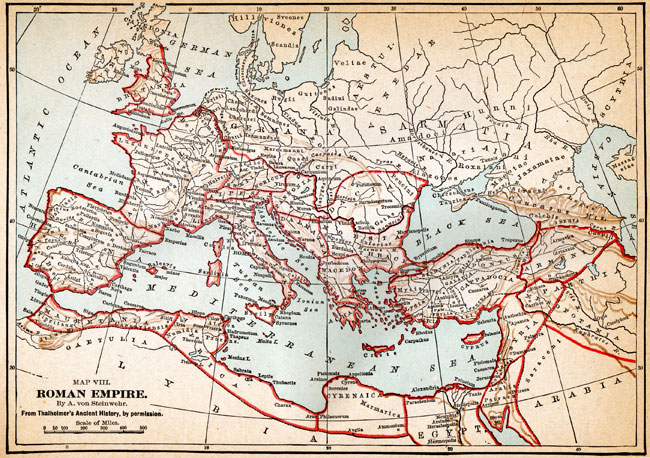Immoderate greatness
| Line 1: | Line 1: | ||
| − | [[Image:map-ancient-rome-2.jpg]] | + | [[Image:map-ancient-rome-2.jpg]] (To large) |
Edward Gibbon, The Decline and Fall of the Roman Empire, 1776 | Edward Gibbon, The Decline and Fall of the Roman Empire, 1776 | ||
Revision as of 13:51, 7 May 2009
Edward Gibbon, The Decline and Fall of the Roman Empire, 1776
General Observations On The Fall Of The Roman Empire In The West
"The rise of a city, which swelled into an empire, may deserve, as a singular prodigy, the reflection of a philosophic mind. But the decline of Rome was the natural and inevitable effect of immoderate greatness. Prosperity ripened the principle of decay; the causes of destruction multiplied with the extent of conquest; and as soon as time or accident had removed the artificial supports, the stupendous fabric yielded to the pressure of its own weight. The story of its ruin is simple and obvious; and instead of inquiring why the Roman empire was destroyed, we should rather be surprised that it had subsisted so long. The victorious legions, who, in distant wars, acquired the vices of strangers and mercenaries, first oppressed the freedom of the republic, and afterwards violated the majesty of the purple. The emperors, anxious for their personal safety and the public peace, were reduced to the base expedient of corrupting the discipline which rendered them alike formidable to their sovereign and to the enemy; the vigour of the military government was relaxed and finally dissolved by the partial institutions of Constantine; and the Roman world was overwhelmed by a deluge of barbarians."
